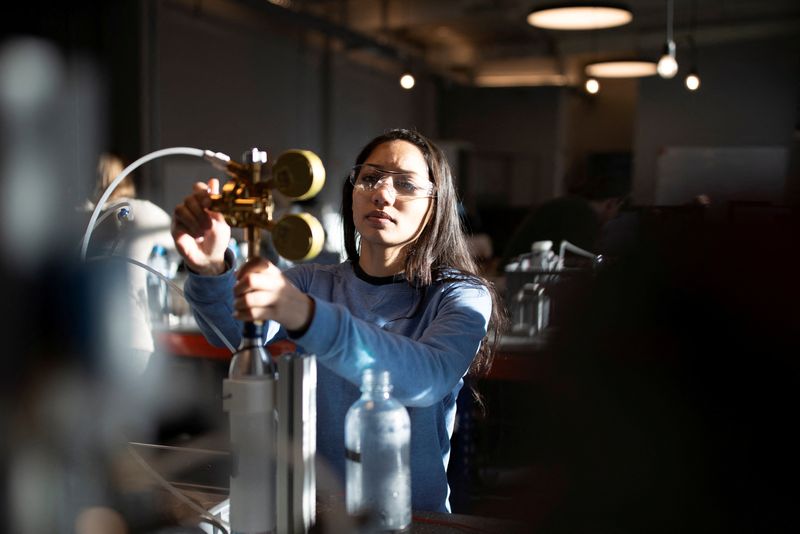BERLIN (Reuters) - Germany is well positioned in education levels when compared with its European peers, but a study conducted by the IW economic institute showed that this privileged position could be at risk.
Having a strong education and vocational training system is important to Germany's economy, Europe's largest, which relies on skilled labour to support its high-end products and services.
"Germany has been left behind to a certain extent in the strong expansion of education that has taken place throughout the European Union in recent years," according to the study of the IW, to which Reuters had access on Saturday.
In the European Union, the proportion of workers between the ages of 25 and 64 without a vocational qualification or higher education fell to 20.7% in 2021 from 27% in 2011, thanks to a dynamic expansion of education in southern Europe. However, in Germany, this share of the population rose slightly to 15.2% in 2021 from 13.4% 10 years before, the study showed.
Among young professionals, those aged 25 to 34 years old, the proportion of highly qualified people with tertiary education was significantly lower in Germany at 35.7%, compared to 41.2% on average in the European Union.
"This should be seen against the background of the very special position of vocational education and training in Germany," the IW said. If one looks at the segment of young professionals with tertiary and secondary vocational training together, Germany has a significantly higher share of 77.0% of educated professionals than the 73.4% for the European Union.

"With the changing demands on employees in the context of digitalisation, decarbonisation and de-globalisation, it is becoming increasingly important for Germany and Europe that the working population achieves the highest possible level of qualification," the IW said.
The IW, a private research institute advocating for German employers, said the government should ensure through early and intensive support that all children in the country are able to acquire a vocational qualification.